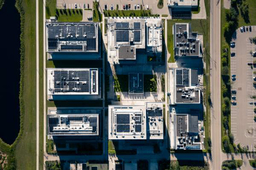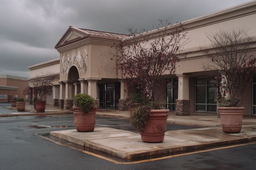Expert Commentary
Latest Articles
Valuation of Insurance Organizations
Elevated Construction and Power Generation Equipment Costs for AI Data Centers
John Ray | February 20, 2026
Expansion and supply are limited by the rise in costs and lead times of construction and equipment, as well as the lack of skilled trades to perform the work. John Ray looks at the factors.
Tech
Data Center Construction: 10 Hidden Risk Management Concerns and Technology to Solve Them
Bret Bush | February 13, 2026
Bret Bush advises taking advantage of the latest advances in Internet of Things monitoring technology to keep projects on track and protect high-value investments.
Insurance Agent E and O
Explain Ordinance or Law Coverage to Avoid E&O Claims
Brent Winans | February 6, 2026
How much is enough? Brent Winans examines the factors to consider.
Subcontractor Performance Risk
Lean and Green: Building Efficiency for a Sustainable Future
Cheri Hanes | February 6, 2026
Cheri Hanes explains how aligning process efficiency with sustainability goals can help project teams build smarter, safer, and more resilient structures.
Commercial Property
Vacancy—What Does It Mean for Commercial Property Coverage?
Catherine L Trischan | January 30, 2026
Catherine Trischan discusses the confusion surrounding the vacancy condition, including various court rulings, and the importance of a thorough understanding by the insurance agent and insured.
Leadership at All Levels
Women in Construction Leadership Lens: Beliefs, Bonds, and Brands
Tricia Kagerer | January 30, 2026
Tricia Kagerer provides insights from the first IRMI Women in Construction networking event.
Courts and Coverage
A Successful Trial Starts with the End
Doug Marcello | January 30, 2026
The closing argument should never be left as a final thought; it should be a guiding document. Doug Marcello explains.
Claims Practices
California Court Rules "Sudden" Is the Opposite of "Gradual"
Barry Zalma | January 30, 2026
Barry Zalma relates a case where the court refused to allow extrinsic evidence to interpret the word "sudden" in qualified pollution exclusions as including gradual but unexpected pollution.
Catastrophe Risk Management
Dealing with Winter Storm Damage
Robin Olson | January 26, 2026
In light of the devastating winter storms that hit the US in late January 2026, IRMI is providing advice on what damage is covered and tips on filing insurance claims.
Tech
Logical Data Management and Data Products Deliver Data for Insurers
Paul Moxon | January 9, 2026
Paul Moxon looks at what's on the horizon and warns that insurers that fail to modernize how they harness data will fall behind.

Valuation of Insurance Organizations
Elevated Construction and Power Generation Equipment Costs for AI Data Centers
John Ray | February 20, 2026

Tech
Data Center Construction: 10 Hidden Risk Management Concerns and Technology to Solve Them
Bret Bush | February 13, 2026

Insurance Agent E and O
Explain Ordinance or Law Coverage to Avoid E&O Claims
Brent Winans | February 6, 2026

Subcontractor Performance Risk
Lean and Green: Building Efficiency for a Sustainable Future
Cheri Hanes | February 6, 2026

Commercial Property
Vacancy—What Does It Mean for Commercial Property Coverage?
Catherine L Trischan | January 30, 2026

Leadership at All Levels
Women in Construction Leadership Lens: Beliefs, Bonds, and Brands
Tricia Kagerer | January 30, 2026

Claims Practices
California Court Rules "Sudden" Is the Opposite of "Gradual"
Barry Zalma | January 30, 2026

Tech
Logical Data Management and Data Products Deliver Data for Insurers
Paul Moxon | January 9, 2026













